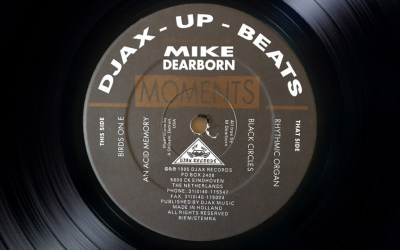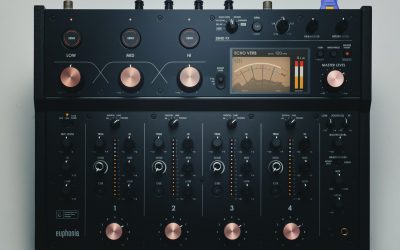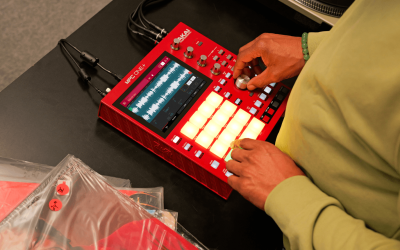Ferdinger’s second release on Instabul record label Primus, an LP titled Palette, is four tracks of fast-paced, synth-heavy techno that starts with a bang and doesn’t slow down.
Why Selector is Saying Farewell
by John Cameron | December 31, 2024 | Essay | 0 Comments
The sun is setting on Selector. Read on to learn why cofounder John Cameron doesn’t consider that such a bad thing.
Crate Digging With Andrew Wowk – The Best Bits From December 2024
by Andrew Wowk | December 30, 2024 | Essay, Stories | 0 Comments
From obscurities uncovered during trips down Bandcamp rabbit holes to the latest releases from legendary artists, Crate Digging is here to keep your collection up to date.
Crate Digging With Andrew Wowk – 10 Choice Cuts From November
by Andrew Wowk | December 16, 2024 | Essay | 0 Comments
From obscurities uncovered during trips down Bandcamp rabbit holes to the latest releases from legendary artists, Crate Digging is here to keep your collection up to date.
Crate Digging With Andrew Wowk – 14 Must-Have Tracks From September and October
by Andrew Wowk | November 20, 2024 | Essay | 0 Comments
From obscurities uncovered during trips down Bandcamp rabbit holes to the latest releases from legendary artists, Crate Digging is here to keep your collection up to date.
Crate Digging With Andrew Wowk – 10 Gems From May and June
by Andrew Wowk | June 26, 2024 | Essay | 0 Comments
From obscurities uncovered during trips down Bandcamp rabbit holes to the latest releases from legendary artists, Crate Digging is here to keep your collection up to date.
Crate Digging with Andrew Wowk – 14 Killer Tracks From March and April
by Andrew Wowk | May 7, 2024 | Uncategorized | 0 Comments
From obscurities uncovered during trips down Bandcamp rabbit holes to the latest releases from legendary artists, Crate Digging is here to keep your collection up to date.
Moog Music to Move Out of Current Asheville Location
AlphaTheta Releases the euphonia 4-Channel Rotary Mixer
by Jay Remy | April 3, 2024 | Tech, Uncategorized | 0 Comments
The euphonia has entered Pioneer DJ parent company AlphaTheta into the boutique rotary market.























